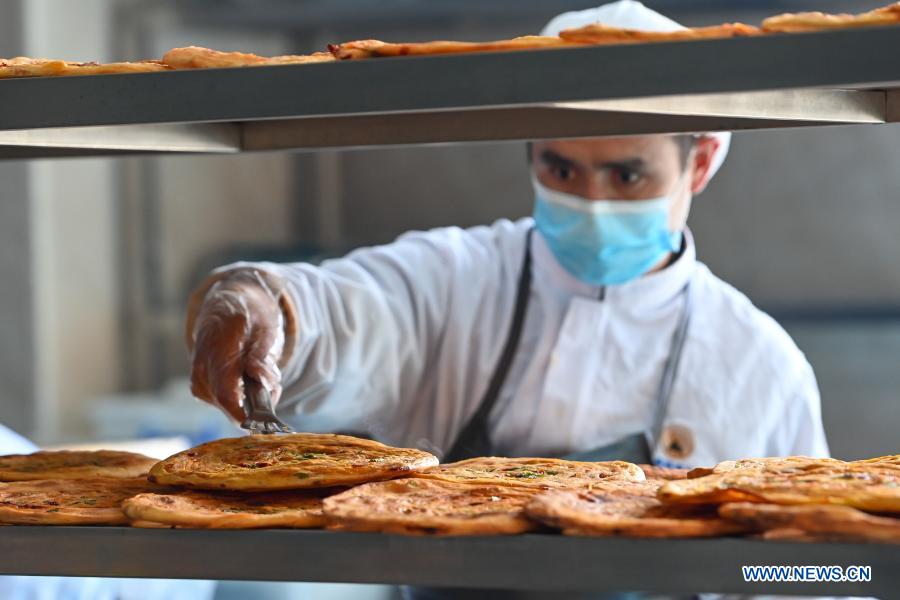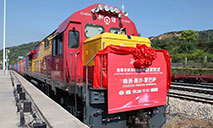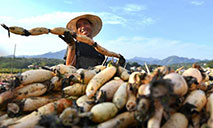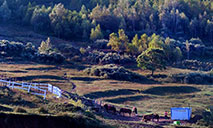Xinjiang fosters featured industries, brings wealth to local people
Northwest China’s Xinjiang Uygur Autonomous Region has been fostering featured industries by tapping the region’s resources, in this way increasing the incomes of local people.

A worker arranges newly-made spicy Nang, a local flatbread, at a workshop of an industrial park in Horgos, northwest China's Xinjiang Uygur Autonomous Region, Feb. 5, 2021. (Xinhua/Ding Lei)
The region will prioritize 10 featured industries, including petroleum, apparels and textiles, Nang (a kind of crusty flatbread), fruit, wine, and tourism, in addition to promoting the integrated development of Xinjiang’s primary, secondary, and tertiary industries during the 14th Five-Year Plan period (2021-2025).
For example, the region has turned Nang into a cash cow that has led many local residents to a life of prosperity. About 23.25 million Nang are made each and every day all over the region, with daily sales of the local specialty reaching about 57.52 million yuan (about $8.92 million). The Nang industry now provides jobs for 113,000 people.
Xinjiang’s Kashgar Prefecture continued to make renewed efforts to develop the Nang industry in early 2020. Now, it is home to 14 Nang industrial parks, 201 Nang cooperatives, 2,300 Nang workshops, and 54 Nang enterprises, according to an official from the prefecture. Kashgar produces an average of 6.54 million Nang per day and the industry has created jobs for 37,000 people.
A similar story is unfolding in the Yanqi Hui Autonomous County of Bayingolin Mongol Autonomous Prefecture in Xinjiang.
Located within the grape planting “golden zone” between 30 to 50 degrees northern latitude, Yanqi has long been a major wine producing area in the region. The county has vigorously developed the wine industry in recent years. Its planting area for wine grapes has reached 3,200 hectares, with 28 related enterprises and 15 wineries having been established. The county produces 35,000 kiloliters of wine each year.
Furthermore, Yanqi has promoted the integrated development of grape planting, sapling breeding, wine production, wine culture, catering, accommodation, and tourism, with a comprehensive industrial output value exceeding 250 million yuan.
“After learning that Xinjiang had listed the wine industry as one of its top 10 featured industries, I made plans to invest more into building the second phase of my winery as well as a tourist center,” said Chen Lizhong, owner of a winery operating in the county.
Photos
Related Stories
- Howitzers fire at targets in live-fire exercise
- US urged to stop making the same errors
- China sends working group to Xinjiang to guide COVID-19 response
- Beijing girl brews prosperous wine enterprise in Xinjiang
- Xinjiang residents share personal stories to debunk lies on human rights condition
- Chili peppers dried in China's Xinjiang
Copyright © 2021 People's Daily Online. All Rights Reserved.










